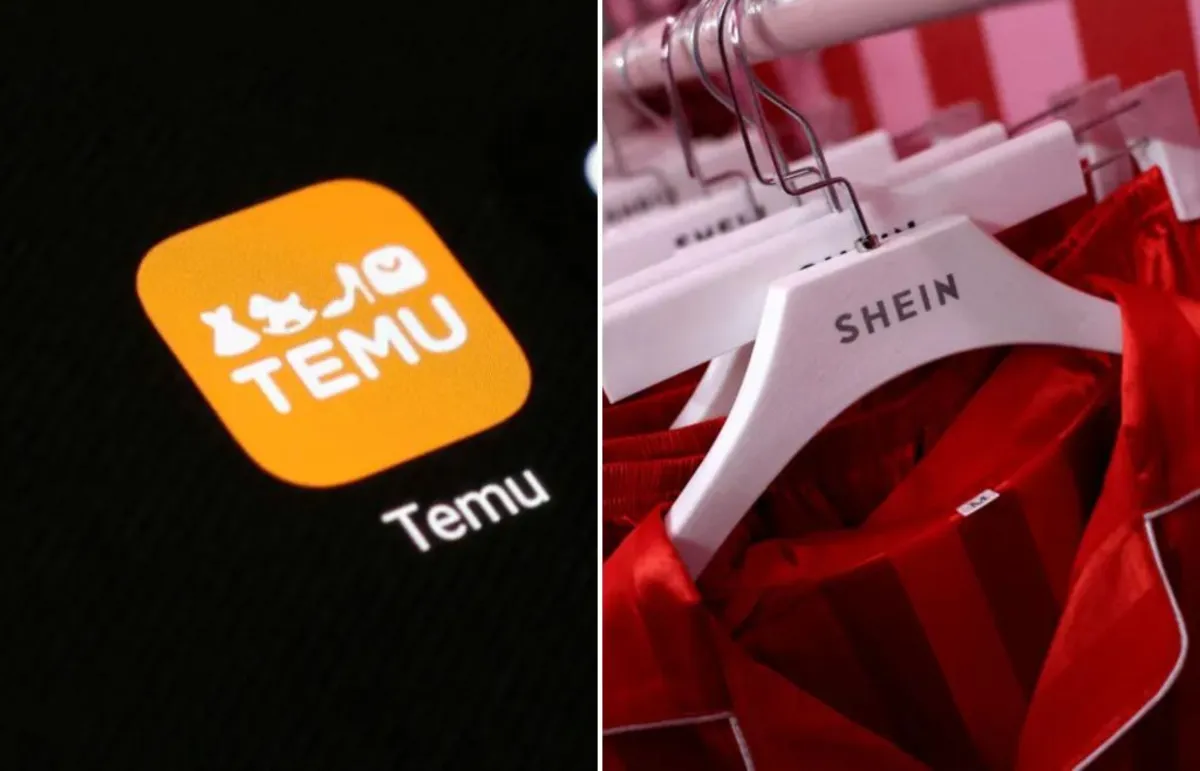
Your favorite T-shirts, dresses, and affordable appliances from Shein and Temu have recently become more expensive due to new tariffs imposed by President Trump. As of May 2, a hefty 120% tariff will come into effect, affecting goods that were previously exempt from tariffs under the de minimis rule.
On Friday, both Shein and Temu adjusted their prices to offset the anticipated costs associated with this new tariff regulation. For instance, two patio chairs listed on Temu saw a price increase from $61.72 to $70.17, representing a significant markup. Similarly, a bathing suit set on Shein rose dramatically from $4.39 to $8.39, marking a staggering 91% increase in price.
It's worth noting that while many products experienced price hikes, not all items followed the same trend. For example, a smart ring sold on Temu was actually priced about $3 lower on Friday compared to Thursday. This inconsistency highlights the fluctuating nature of online pricing in response to market changes.
Temu addressed its customers in a recent online statement, explaining that rising operating expenses due to “recent changes in global trade rules and tariffs” necessitated the price adjustments. The company emphasized its commitment to offering quality products while navigating these new financial challenges.
Prior to the tariff implementation, Shein and Temu had warned customers to purchase items quickly, indicating that significant price hikes were on the horizon. This executive order signed by Trump targets the loophole that allowed Chinese companies to bypass standard customs checks, aiming to increase scrutiny on low-value items entering the US.
While the end of the de minimis rule will likely lead to more thorough inspections of low-value items—potentially preventing dangerous or defective products from reaching consumers—it will simultaneously disproportionately affect low-income Americans. According to a report by the Trade Partnership Worldwide, low-income households spent over three times their share of income on apparel compared to wealthier households in 2021.
Research conducted by UCLA and Yale economists revealed that a staggering 48% of packages shipped under the de minimis threshold were delivered to the poorest zip codes in the US, whereas only 22% reached the wealthiest areas. This data underscores the significant reliance low-income Americans have on affordable retailers like Shein and Temu.
In summary, the recent price hikes on Shein and Temu products highlight the broader implications of the new tariffs, particularly for low-income consumers who depend on affordable fashion and household items. As these changes unfold, it remains to be seen how both businesses and consumers will adapt to the evolving landscape of online retail.